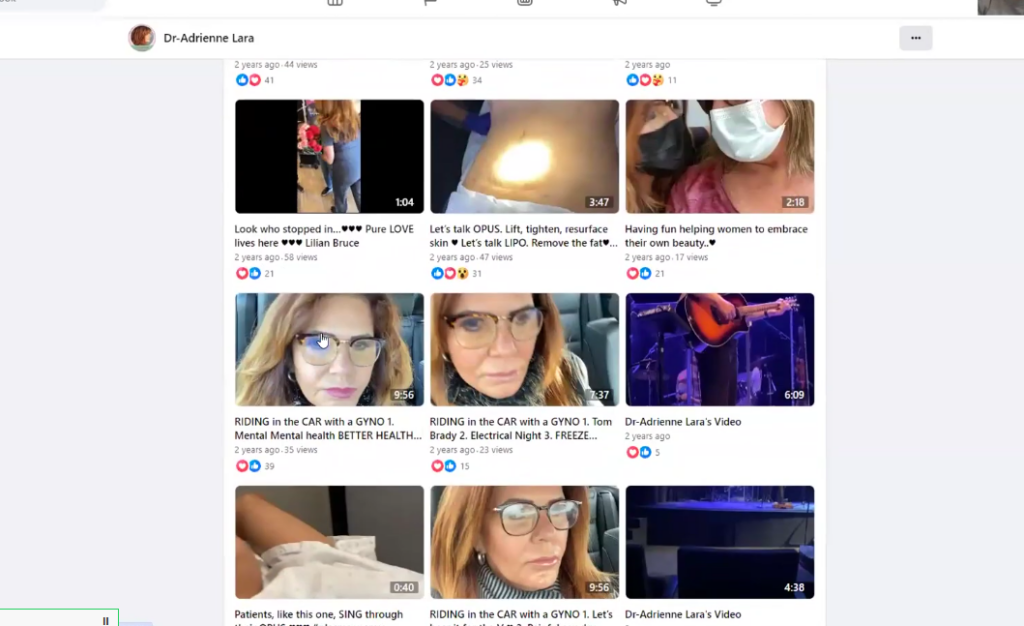
Most therapists are passionate about helping people, but if potential clients can’t find you, how will they know you’re the right fit for them?
Dylan Motto understands this deeply. As someone who helps therapists build their online presence, he has seen firsthand how personal branding can change a practice’s trajectory.
On a trip to Minneapolis, I met with Dylan Motto, a dedicated social media strategist who is passionate about helping therapists grow their practices. We first connected on social media, but meeting in person deepened our discussions.
We talked about personal branding from the moment he picked me up at the airport and interviewed Michael Houg to our final moments filming in the car before my flight. Over casual conversations, we explored how therapists can use social media to build credibility and attract the right clients.

Why Personal Branding Matters for Therapists
Many therapists hesitate to embrace personal branding, worrying that social media might violate HIPAA or harm their professional image.
But personal branding isn’t about fame—it’s about trust. It’s about making it easier for the right clients to find you and feel comfortable reaching out.
Dylan has seen therapists struggle with this firsthand. “I’ve heard so many therapists say, ‘I don’t know where to start with social media.’ The truth is, starting is simpler than they think,” he says. The key is showing up authentically and letting people see who you are—imperfections and all.
Think about it: when someone is struggling with anxiety, PTSD, or depression, where are they looking for help? They’re scrolling through Instagram, TikTok, or Facebook, encountering content that speaks to them.
If you’re not visible in those spaces, you’re missing an opportunity to reach the very people you’re trying to help.
Your Website Alone Isn’t Enough
Many therapists believe that having a website is sufficient. But the truth is that most professional websites get little to no traffic.
Through auditing thousands of doctor, dentist, and therapist websites, I’ve found that without a social media presence driving engagement, your website is essentially invisible.
Even if someone does land on your website, if they are under 40, the first thing they’ll do before reaching out is check your social media. They want to know who you are beyond your credentials. They want to see your personality, your passion, and what you stand for.
These days, people trust what they see online more than a list of credentials on a website.
This is where the Content Factory process comes in:
- Produce: Capture raw content—videos, insights, and behind-the-scenes moments.
- Process: Refine your content using AI tools like Descript and ChatGPT.
- Post: Distribute it across your social platforms.
- Promote: Boost your best-performing content to reach more people.
By following this system, therapists can establish a consistent and authentic online presence without spending hours on social media.
The Biggest Mistakes Therapists Make on Social Media
- Fear of Oversharing: Many therapists avoid social media because they worry about violating HIPAA. The key is to share general advice, personal insights, and relatable experiences—never specific client details.
- Using “You” in Posts: Facebook and other platforms have strict rules against content that directly addresses mental health conditions. Instead of saying, “If you’re struggling with anxiety, reach out to me,” try, “Many of my clients have found these mindfulness tips helpful for managing anxiety.”
- Not Having a Strategy: Posting randomly without a clear message leads to frustration and burnout. Your content should be designed to educate, inspire, and create meaningful connections.
How to Use Social Media to Attract the Right Clients
Another powerful example of personal branding in action comes from Dr-Adrienne Lara, a Harvard-trained physician who specializes in women’s health. She doesn’t just market her services—she shares stories.
One of her patients, who tragically lost her daughter, found healing by creating devotional candles, each with a unique scent and meaning. Dr. Lara honored her patients’ journey by sharing these candles with her audience and demonstrating her care for her patients beyond just the medical setting. This approach built trust, created engagement, and ultimately helped her attract more clients.

Dylan and I also talked about how therapists can leverage video content effectively. I shared a story about an attorney, Ali Awad, who used social media to dominate his field. “Ali started sharing simple, helpful legal tips, and over time, people trusted him enough to reach out when they needed an attorney. The same applies to therapists. If you put out helpful content, people will remember you when they need help.”
The key to success isn’t just posting content—it’s about being intentional. Here’s how:
- Share Micro-Moments: People connect with stories, not sales pitches. Dylan shared an example of how a friend of his struggled to find a therapist on Psychology Today and ended up picking someone based solely on their profile picture. Imagine if that therapist had a short video introducing themselves. That could have made all the difference in building trust.
- Provide Valuable Advice: A quick video sharing a simple mental health tip can make a huge impact. For example, “Here’s a breathing exercise I often recommend to clients struggling with stress.”
- Use Video to Build Trust: A 15-second introduction video can make all the difference. Instead of being just another name on Psychology Today, a video lets potential clients feel like they already know you before they even reach out.
- Engage with Your Audience: Respond to comments, participate in discussions, and build relationships. Social media isn’t about broadcasting—it’s about conversation.
The Future of Therapy is Digital—Are You Ready?
The reality is that your next client is already online, searching for help. They’re looking for someone they can trust, someone who understands their struggles, and someone they feel comfortable with. They won’t find you if you’re not putting yourself out there.
Dylan Motto has helped numerous therapists understand the world of digital marketing. If you’re feeling overwhelmed about where to start, he’s the person to talk to.
Rather than waiting for clients to find you, take control of your digital presence. Post a video, share a tip, and tell a story. You don’t need to be perfect; you just need to be present.
Through his work with therapists, Dylan Motto has seen firsthand the impact of strong personal branding and has contributed to key discussions on implementing it effectively. His dedication to helping professionals understand social media’s impact is evident in our conversations.
Want expert guidance? Reach out to Dylan Motto. Your next breakthrough in therapy marketing starts with a conversation.
